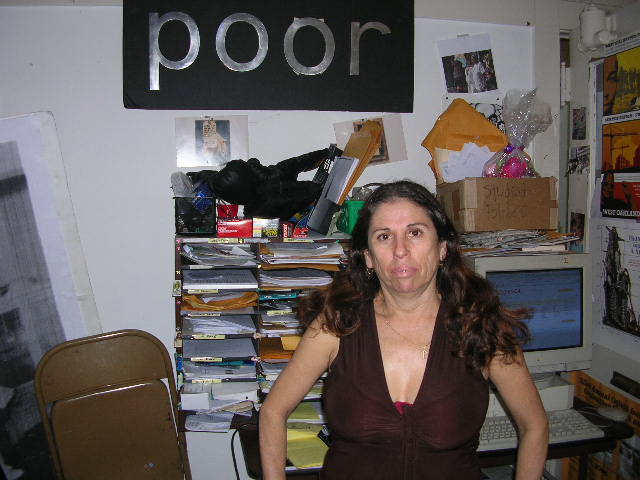Cientos de Trabajadoras Domesticas se Reúnen, Marchan y Rezan en Nueva Cork para los Derechos de Trabajadoras Domesticas
Hundreds of Domestic Workers Meet, March and Pray in New York for the rights of Domestic Workers
Cientos de Trabajadoras Domesticas se Reúnen, Marchan y Rezan en Nueva Cork para los Derechos de Trabajadoras Domesticas
Hundreds of Domestic Workers Meet, March and Pray in New York for the rights of Domestic Workers
 |
|
by Teresa Molina/PNN Voces de Inmigrantes en Resistencia Scroll Down for English Yo soy una mujer inmigrante trabajadora, madre de cinco hijos, luchando dia a dia viviendo la discriminación por ser pobre y inmigrante en Amérikkka. En Mayo muchos de nosotros, l@s trabajadoras domesticas, sabios de la pobreza y migración viajamos por una semana a Nueva York, con el propósito de hacer cambios. Fuimos apoyar la carta de derechos de trabajadoras de casa o domesticas. Éramos como cuatro organizaciones de San Francisco en ellas estuvieron, Mujeres Unidas y Activas, POWER, Filipinos Por Acción Afirmativas y la Prensa Pobre; todos con el mismo propósito—de ganar los derechos que no tenemos las trabajadoras del hogar y los trabajadores del campo. Todas estas organizaciones somos parte de la Coalición de Trabajadoras del Hogar, y muchas otras organizaciones vinieron por todas partes de los Estados Unidos. Ya ahí, como 600 personas marchamos, por las calles de Nueva York. El sol estaba muy caliente, y nuestras caras estaban bien sudadas como si nos estuviéramos bañando, pero no nos importo. El primer día que llegamos a Nueva York fuimos a una marcha caminamos como por 2 horas, el calor era terrible pero la sed por la justicia y ser escuchados nos hace sentirnos fuertes. Por dos días estuvimos tomando talleres. En el tercer día hicimos visitas a los legisladores en Asbery, como a tres horas afuera de la cuidad de Nueva York. Tuvimos que levantarnos alas cinco de la mañana para tomar el tren y llegar al la parada del bus, que salía a las siete de la mañana para Asbery. La mayoría de legisladores eran Republicanos y no sentimos mucho apoyo porque ell@s no apoyan mucho a la gente pobre trabajadora. Yo pienso que actúan como rasistas y no nos ven con buenos ojos. Después de las visitas, tuvimos una pequeña ceremonia en frente de una iglesia con el propósito de hacer nuestra lucha mas visible. Los cantos y la unidad nos emocionaban de la emoción, tanto que ni sentíamos el cansancio. Pero la verdad estábamos bien cansados habíamos dormido muy poco y caminado demasiado, pero la sed por la justicia nos motivaba. Nosotros aquí en La Prensa Pobre pensamos que luchando juntos tendremos victorias y seremos escuchados porque nadie va a luchar por nosotros sino nosotros mismos. **************** Ingles Sigue I am a hard working immigrant woman, mother of five children, struggling with day to day living and discrimination for being poor and an immigrant in Amerikkka In May, many of us-- domestic workers, migrant and poverty scholars-- traveled to New York for a week with the purpose of creating change. We made the journey to support The Domestic Workers Bill of Rights (A1470/S2311). The bill would provide comprehensive workers rights: paid vacation and sick time, annual cost of living adjustments, one day's rest per week, notices of termination and severance as well as health insurance coverage. The contigent from San Francisco included representatives from Mujeres Unidas y Activas, POWER, Filipinos for Affirmative Action, and POOR Magazine; all with a common goal—to win workplace rights for domestic workers. These organizations are part of the Coalition of Domestic Workers, and many others came from across the country. Once there, we took to the streets and about 600 of us Marched through the busy streets of New York. The sun was really hot, our faces were sweating, as if we were taking a shower, but this did not hold us back. This was the first day we were in New York and we marched for two hours, the heat was intense, but the thirst for justice and the need to be heard made us feel strong. For two days we participated in workshops. On the third day we visited different state legislators in Asbery, located three hours outside of New York City. We woke at five in the morning to take the train to the bus station, which departed for Asbery at seven in morning. Many of the legislators were Republicans and we did not feel supported; many Republicans are known to not support working class people and are racist, because they do not see us with good eyes. After the lobbying we had a small ceremony in front of a church with the purpose of making our struggle more visible. Our chants and unity brought us emotions, so much that we did not feel how tired we were feeling. We had slept very little and walked a lot, but our thirst of Justice motivated us. Here at POOR Magazine, we believe that if we fight in unity we will have victories and will be heard; no one else but ourselves are going to fight for our own struggle. |



